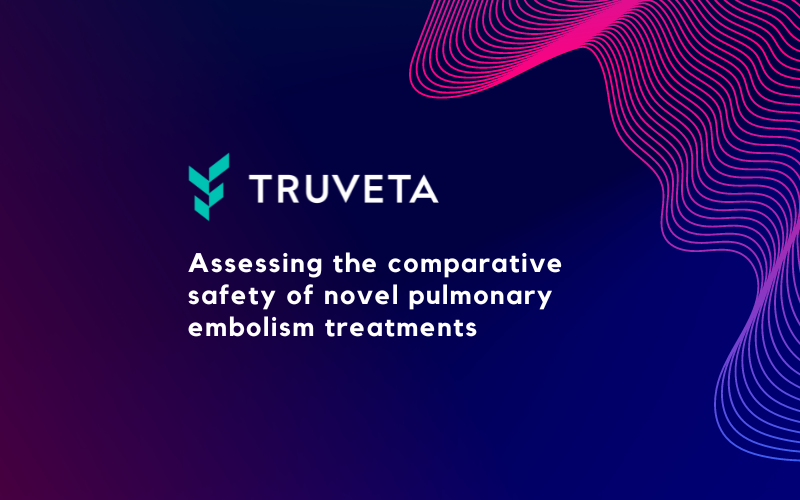Each year, approximately 900,000 patients in the US are affected by a pulmonary embolism, a blood clot causing a blockage in one or more pulmonary arteries in the lungs. Despite the availability of new therapies, there are no randomized prospective studies comparing them, and clinical guidelines have not been updated to reflect the real-world safety of these options in a modern setting.
To close these knowledge gaps, Boston Scientific turned to a team of independent researchers to conduct a comparative safety analysis using Truveta Data.
Download the case study for insight into:
- Why traditional RWD sources fall short in enabling timely research on specific medical devices
- The precise data types required to complete the analysis
- The study methodology, key outcome measures, results, and impact
